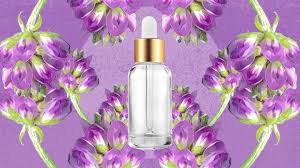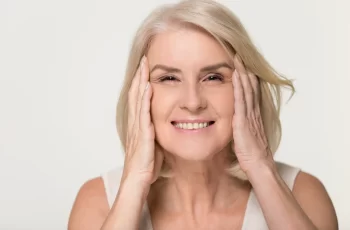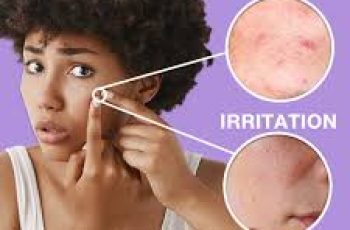What is Bakuchiol? And what are its benefits for skin care?
Bakuchiol is a powerful antioxidant that can help with a variety of skin issues. It has long been used in traditional Chinese medicine and is finding its way into Western skincare products. But what is it?
Mysterious ingredient? And what benefits can we expect from it? Today we’re going to look at Bakuchiol in more detail and hopefully learn a little more about it.
What is Bakuchiol made of?
Found in the seeds and leaves of the Bakuchiol plant, Bakuchiol is widely used in traditional Indian and Chinese medicine for a variety of conditions due to its antioxidant, anti-inflammatory and antimicrobial properties.
Especially as it relates to skin issues.
Although Bakuchiol may seem to be a relatively new climber and popular ingredient in skincare products, a slew of scientific studies since 2014 have shown it to be a highly effective and safe alternative to retinol.
What does Bakuchiol do for the skin?
Numerous studies have shown that Bakuchiol is just as effective at reducing fine lines and wrinkles on the skin, and is less irritating than other products. It is also a powerful antioxidant, which means it has the ability to protect the skin and its natural barrier from environmental influences such as the sun, pollution, climate, and other skin stressors.
A full list of skin benefits that can be achieved with Bakuchiol: Helps fight uneven skin tone. May help reduce signs of aging such as fine lines and wrinkles. Can regenerate skin cells for radiant, younger-looking skin
Accelerates skin rejuvenation. Contains anti-inflammatory properties. Contains anti-acne properties.
Helps restore firmness by increasing collagen production in the skin. Improves skin texture for a smoother complexion. Helps soothe skin, making it a good choice for those prone to sensitivity. A lesser-known ingredient in the beauty industry that has achieved some impressive results. Since it is compared to retinol, it is ideal for those who find retinoids too strong for their skin and often cause irritation.
Bakuchiol now gives you the opportunity to get the same skin benefits without causing a skin reaction. How is Bakuchiol Oil Used? When using bakuchiol oil, you also need to use a “carrier oil” like coconut oil, which makes it more emollient and allows it to move around the face and penetrate deeper into the skin, into the lower layers of the epidermis.
Take a few drops of bakuchiol oil (as needed). Add an equal amount of coconut oil and mix everything together. Apply it to the desired areas 4-5 times a day. You can also find bakuchiol in serum form, which you can use after thoroughly cleansing your skin and before applying moisturizer. Bakuchiol’s formulation and manufacturing vary little, but the benefits to the skin are just as powerful.
Unlike retinol, which needs to be introduced slowly into your skincare routine to give your skin time to build up a tolerance to the concentrated concentration, bakuchiol is safe and gentle enough to use. You’ll also notice that certain ingredients that don’t work well with retinol will have little or no effect on the effectiveness of bakuchiol.
How long does it take for bakuchiol to work?
With regular, consistent use in your skincare routine, you’ll start to see results in about 12 weeks. Use twice daily to restore elasticity, wrinkles, and hyperpigmentation for a smoother, firmer, and more radiant complexion.
Can Bakuchiol be used during the day?
Unlike retinol, which loses its effectiveness when exposed to UV rays, bakuchiol can be used during the day due to the anti-inflammatory properties of its formula. However, an SPF of 30 or higher is still recommended to ensure that damage from excessive sun exposure does not occur.
Is Bakuchiol as good as retinol?
Strictly speaking, bakuchiol and retinol are not structurally identical, but they work just as effectively on the skin to reduce fine lines, wrinkles, and other signs of aging, and they actually work well together.
When used together, you’ll notice a strong overlapping effect on the skin that tends to neutralize the stronger retinol, as bakuchiol has the soothing properties of stabilized vitamin A, which improves skin tolerance
Increasing retinols of varying strengths.
You’ll also find that bakuchiol is more stable in sunlight, making it a great retinol alternative for all-day use. Remember to moisturize your skin with a broad-spectrum sunscreen of SPF 30 or higher to protect it from damage and give you the best results for your entire complexion.
Why is bakuchiol so popular right now?
This is likely due to the growing popularity of natural and vegan alternatives to other traditional ingredients. In recent years, people have become more aware and concerned about skincare ingredients, becoming mainstream and widely used in a variety of skincare products.
More and more people are paying attention to the products they use on their faces and choosing ingredients that are highly effective and impactful. So, you have a strong and effective retinol alternative. For some people who are prone to allergies, just the word “retinol” can trigger a rash. But luckily, you have now found a great alternative that can simplify your skincare routine and easily solve your skin problems.
DQH Knowledge drop: In your 20s, your skin cell turnover decreases. (Cell turnover is a key component in keeping your skin youthful.) You know what else slows down? Your collagen production. Starting in your 20s, collagen decreases by about 1 percent per year. Should you want to prevent fine lines and wrinkles, start by eliminating behaviors that contribute to premature aging. “If it’s bad for you, it’s bad for your skin,” says dermatologist Michel Somenek.
“Cigarette smoking reduces blood flow to the skin and causes premature wrinkling and a dull skin texture. Making the repeated pursed motion to inhale can also cause smoker’s lines. Alcohol and recreational drugs are toxins for the skin that damage its cellular structure and DNA,” Somenek tells us. “The faster you eliminate vices while you are young, the better chance your skin and body have to recuperate.” Also, adopting an anti-aging routine in your 20s is key. After all, the best offense is a good defense. We spoke to Somenek and experts Joshua Ross and Audrey Kunin to find out more.
Keep reading for the best anti-aging products for your 20s, according to skincare professionals.
Sunscreen
“We all know that the sun is the number one cause of skin aging and starting the prevention in your 20s is very important,” Ross says. “The majority of your sun damage won’t start to appear until you’re in your 30s, so don’t wait until you see it surface or you’ll be behind the curve. Stay ahead of it with a good-quality zinc-based sunscreen worn daily.”
Farmacy Green Defense Daily Mineral Sunscreen
An invisible sunscreen with SPF 30, plus botanical extracts meant to protect skin with tons of antioxidants. Bonus: It’s clean and fine to use under makeup.
Bareminerals Complexion Rescue™ Tinted Moisturizer Broad Spectrum SPF 30
Although we recommend you use your SPF and moisturizer separately, we also understand moments when you don’t have time or energy for that extra step. For those times, this bareMinerals moisturizer is a great thing to have on hand.
Vitamin C Serum
“A great introduction to anti-aging is to start with a vitamin C serum in your morning skincare routine,” Ross says. “It’s a powerful antioxidant that will neutralize free radicals and brighten the skin.” He adds that it’s a great way to counteract the effects of the sun’s harmful rays, which, as previously mentioned, are among the biggest causes of premature aging.
Drunk Elephant C-Firma™ Vitamin C Day Serum
The Drunk Elephant C-Firma is a lightweight serum that promises to give skin a glow by combining the brightening powers of vitamin C with ferulic acid, l-ascorbic acid, and vitamin E. The included sodium hyaluronate is meant to replace hydration loss, so you shouldn’t have to deal with any irritation.
Sunday Riley C.E.O. Rapid Flash Brightening Serum
This potent serum is jam-packed with vitamin C (15 percent, to be exact), which means it’s a potential superstar at both brightening skin and dousing it in antioxidants.
Peptides
Using peptides on your skin has many benefits, says Somenek. “The skin barrier is what defends the body against pollution, UV rays, bacteria, and toxins. It can be damaged by several everyday factors. Using topical peptides aids in building a stronger barrier,” he says. “Peptides comprise elastic fibers, which are a type of protein. These fibers help to make skin appear taut and firm. Peptides can also help repair damaged skin, relieve inflammation, and even out skin tone. Some peptides can kill acne-causing bacteria that is common in 20-somethings.”
Kunin agrees, saying, “Peptides are an excellent entry point for supporting collagen.” She recommends looking for face and eye treatments that contain these collagen-boosting powerhouses.
Charlotte Tilbury Magic Eye Rescue Cream
This Charlotte Tilbury super-emollient eye cream has a base of coconut oil and shea butter (read: it’s incredibly hydrating). Botanicals plus peptides are meant to help reduce dark circles and boost collagen, respectively.
This creamy moisturizer serves up potent collagen-boosting peptides and pycnogenol, and antioxidant-rich vitamin C. “Instead of sitting on top of the skin, peptides penetrate the outer layer so they go deep. The ‘signals’ they send tell the cells to produce elastin and collagen, which are needed for youthful-looking skin,” explains Somenek.
At-Home Peel Pads
Remember that skin cell turnover fiasco we talked about earlier? One way to help support it is by exfoliating. “Exfoliation is important to help keep skin fresh and luminous,” Kunin says. She recommends using at-home peel pads as an easy and effective way to exfoliate.
“The goal in your 20s is to fight the slowing pace of cell turnover. It is wise to use products that gently exfoliate, yet still remove oil and other impurities. Products that have Alpha Hydroxy Acids (AHA) or Beta Hydroxy Acids (BHA) are a good choice.”
According to Somenek, you should only exfoliate two to three times a week. “People of all ages are guilty of over-exfoliating and that can be too much of a good thing,” he says.
Dermadoctor Kakadu C Intensive Vitamin C Peel Pad
A few swipes of this Derma Doctor powerful peel pad promise to leave your skin glowing and smooth, thanks to the seven (yes, seven) types of chemical exfoliants, including AHA and BHA. It also contains vitamin C via Kakadu plum extract for added brightening and antioxidant protection.
KEY INGREDIENTS Kakadu plum extract is sourced from the Kakadu plum, a fruit grown in northern Australia. It contains vitamin C, which restores the skin’s natural barrier, increases collagen production, and soothes irritation.
Dr. Dennis Gross Skincare Alpha Beta® Universal Daily Peel Pads
These are the gold standard of peel pads, with a cult following and over 900 five-star reviews on Sephora. They’re easy to use and contain a blend of anti-aging exfoliating acids.
Emollient Night Cream
“In your 20s, you need to start upping the hydration in your skincare routine. You may have been cautious of over-moisturizing because of acne in your teens, but as you enter your 20s, your skin transitions and becomes drier,” Ross says. “I recommend an emollient night cream added into your evening skincare regimen.”
“Twenty-somethings need to make sure that they are not using creams that will clog their pores and cause excess oil production,” says Somenek. Opt for non-comedogenic products.
Cerave Skin Renewing Night Cream
One great choice is the CeraVe Skin Renewing Night Cream, which is a non-comedogenic night cream that leaves skin soft and glowy. It combines the moisturizing powers of ceramides and hyaluronic acid.
RoC Retinol Correxion Max Hydration Creme
“The best night cream ingredients contain retinol, benzoyl peroxide, and/or salicylic acid or hyaluronic acid. The goal is to moisturize, yet remove excess oil,” says Somenek. This Roc Retinol Correxion cream fits the bill as it contains both hyaluronic acid and retinol so it promises to moisturize while also being non-comedogenic.



